‘Only Sand and Bedouins’
Amjad Iraqi
David Rubinger died on 1 March at the age of 92. His photograph of three Israeli paratroopers gazing at the Western Wall, taken minutes after Israeli forces seized Jerusalem’s Old City during the 1967 Arab-Israeli war, was widely revered as a symbol of Zionism’s triumphant destiny. Rubinger, however, was not particularly fond of the picture: ‘Part of the face is cut off on the right side,’ he said, ‘in the middle the nose protrudes, and on the left there’s only half a face … photographically speaking, this isn’t a good photo.’
The soldiers’ faces were not the only things cut out of the shot. Behind Rubinger were the buildings of the Mughrabi Quarter of the Old City, home to about 650 Palestinians. Three days after the picture was taken, the Israeli army evicted the residents and demolished their houses and mosques. An open plaza now welcomes worshippers and visitors to the Western Wall, with no trace of the area’s former life. ‘There are those who write the pages of history,’ President Rivlin said after Rubinger’s death, ‘and there are those who create them with their lens.’
Israeli visual history has always required the erasure of Palestinians. The National Library recently released forty aerial photos, taken by Zoltan Kluger in 1937, of what it described as ‘pre-state Israel’ rather than Mandate Palestine. The images, which include views of the Nahalal moshav and Tel Aviv, boulster the Zionist myth of the land as an untapped oasis waiting for Jewish labour and habitation.
The myth is still thriving eighty years later, on both sides of the Green Line. Kluger’s photo of the fertile banks of the River Jordan could easily be used today to advertise the ongoing expansion of Israeli settlements and industries in the occupied Jordan Valley, which have displaced thousands of Palestinians. In the Negev, the Palestinian village of Umm al-Hiran is slated to be destroyed and a Jewish town built on its ruins. A video made by the incoming Jewish residents, who currently live in a temporary encampment in a nearby forest, shows two men searching the desert for signs of life but find ‘only sand and Bedouins’ – Bedouins who are Israeli citizens.
The military occupation heralded by Rubinger’s photograph is now a permanent part of the Israeli state. Local maps and signs in Jerusalem either omit or redraw the Green Line; there’s little to tell pedestrians entering the Old City that they are crossing into occupied territory. The Trump administration has confirmed David Friedman, a supporter of the West Bank settlements, as its ambassador to Israel, and is touting a plan to move its embassy from Tel Aviv to Jerusalem. A law passed by the Knesset last month officially recognises dozens of settlement outposts built on private Palestinian property. A law passed last week denies entry visas to foreigners who call for any form of boycott against Israel or its settlements.
But images are not only a tool for the coloniser; they are a means of resistance for the colonised, too. In Walid Khalidi’s Before Their Diaspora, 474 photographs reconstruct the lost world of pre-1948 Palestine to debunk the myth of the region as ‘a land without a people’.
Activestills’ photographers document scenes of Palestinian protesters kicking away American-made tear gas canisters and tearing down pieces of Israel’s separation wall. The residents of threatened Palestinian villages share live videos of house demolitions and military brutality on social media. Despite or because of Israel’s best efforts, Palestinians are still fighting back, lens for lens. Their struggle, Khalidi writes, ‘has little chance of fading into distant memory’ while the ‘wounds of yesterday fester alongside those of today’.

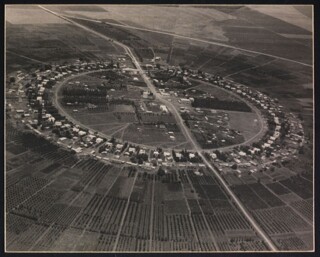
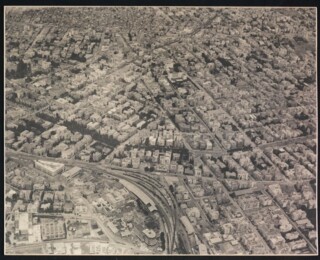
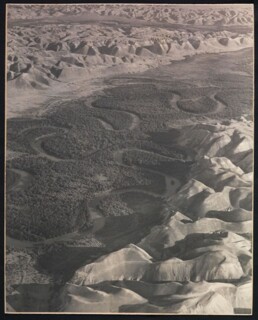
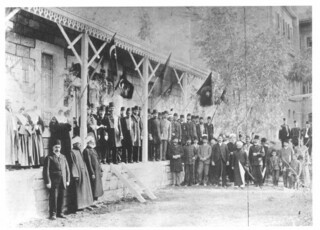
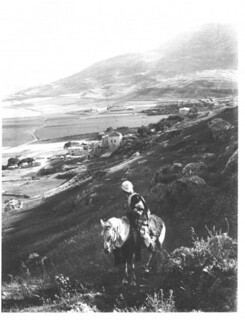

Comments
-
16 March 2017
at
2:24pm
Fred Skolnik
says:
As I once wrote, I have no argument with an Arab or Palestinian who supports the Arab or Palestinian cause. As far as I know, the so-called Moroccan Quarter in front of the Wall was a slum that the Jordanians themselves planned to demolish and the residents did in fact receive some compensation. But if your writer chooses to mention this, he should also be mentioning the fact that in addition to violating the Armistice Agreement by denying Israelis access to the Wall, the Jordanians demolished all the synagogues in the Jewish Quarter and desecrated all the Jewish cemeteries, using the headstones as building blocks.
-
19 March 2017
at
3:49am
judgefloyd
says:
@
Fred Skolnik
'We have gone over that ground already'.
-
19 March 2017
at
4:28am
Fred Skolnik
says:
@
judgefloyd
There was no "Palstinian" country and there never had been. There were Arabs living in what they had always thought of as Greater or Southern Syria until the British borrowed the name Palestine from the Romans – Arabs who considered themselves an integral and indistinguishable part of the Arab nation and a very large number of whom were migrants who had arrived from the mid-19th century on. (According to the 1931 census, over 20 different languages were in use by Muslims, and non-Jews in Mandatory Palestine listed as their birthplaces at least 24 different countries [Sudan, Egypt, Lebanon, Syria, Iraq, Saudi Arabia, Bahrain, Yemen, Libya, Morocco, Bosnia, the Caucasus, Turkmenistan, Kurdistan, India, Afghanistan, Balochistan, etc.] while the Arab population of Haifa rose from 6,000 in 1880 to 80,000 in 1919 as a result of workforce migration.) The surrounding Arab countries also did not claim the Land of Israel in their behalf. They claimed it in the name of Allah by right of conquest. Well, then, the Jews claimed it too, by right of historical and national attachment. When there is a land dispute between nations, there are only three ways to resolve it: by negotiations, by mediation, or by war. The Arabs chose war. Wars have consequences. One of them is occupation. That is why Israel is occupying the West Bank.
-
19 March 2017
at
10:56am
judgefloyd
says:
@
Fred Skolnik
Pigeon-holing Mr Skolnik's internal monologue for a bit, it's a very moving piece this. That whole erasure thing doesn't seem to be going very well for them.
-
19 March 2017
at
11:02am
Fred Skolnik
says:
@
judgefloyd
You seem to be at a loss for words so you are just stringing them together hoping they'll make sense in the end. They don't.
-
19 March 2017
at
11:09am
judgefloyd
says:
@
Fred Skolnik
Since I haven't said 'the Jews purchase of private land under Turkish and British rule was theft', why should I? Not making sense to you is no problem and leaves me in good company.
-
19 March 2017
at
11:30am
Fred Skolnik
says:
@
judgefloyd
Because I wrote: "As for the rest, the existence of Nahalal and other settlements on land purchased by Jews in a country ruled by Ottoman Turks with a population of a few hundred thousand residents and which today accommodates over ten million people with plenty of room for more should not have provoked such hysteria in the Arab world." Do you see it now: "land purchased" - "hysteria." That is what you replied to.
-
20 March 2017
at
3:57pm
mototom
says:
@
Fred Skolnik
Dear Fred, there seems to be strong parallels between the colonisation of what we now call the USA and Israel. For you, what are the important differences?
-
20 March 2017
at
4:54pm
Fred Skolnik
says:
@
mototom
The difference is that the Jews are the indigenous people, namely the Indians in your parallel, and the Arabs are the conquerors. The Jews come from Judea. The Arabs come from Arabia.
-
18 March 2017
at
7:59am
denismollison
says:
If we are going to go over old ground, it's worth watching a different Jew's view of the long Israel/Palestine story:
-
18 March 2017
at
8:08am
Fred Skolnik
says:
@
denismollison
It is not a matter of views but of demonstrable facts. The Nazi talk, whether by Jews or non-Jews, is nothing more than a perversion of language. If you don't know what "Nazilike" really means, I will be happy to furnish you with a few illustrations.
-
28 March 2017
at
9:32pm
tigran
says:
@
denismollison
So perhaps the Poospatuck and the Mohegan, with some powerful enough allies could retake Manhattan,
-
29 March 2017
at
11:07am
joepraxis
says:
@
tigran
What happens when the Canannites turn up looking for their country back? Israel is the product of 19th century Jewish nationalism just like nearly every other country in the west is the product of their own romantic self-identity. All are cultural constructs, just as states themselves are. Modern Israelis are just as likely to be related to biblical israelites as I am likely to be related to some ancient Fir Bolg or Tuath de Danaan denizen of ancient Ireland. One of the big problems for Israel is that it is a western cultural construct unlike Arabia which is not.
-
29 March 2017
at
12:40pm
Fred Skolnik
says:
@
joepraxis
I don't follow you. There are no people in the world who identify themselves or are identifiable as Canaanites in terms of language, culture, religion, origins or historical memory. Jews have identified themselves as a nation for at least 3500 years. The nationalism may belong to the 19th century but the connection to the Land of Israel has been a theme of Jewish life for 2000 years and the continuity of Jewish history is an indisputable fact.
-
29 March 2017
at
4:29am
Fred Skolnik
says:
Probably not. But if the American Indians were to have started a movement to establish an independent state on the American continent, despite the overwhelming majority of Europeans there, say in a state or two where there was a relatively large concentration of American Indians, say in contiguous portions of Oklahoma and New Mexico or Montana and South Dakota, though they constituted a small fraction of the overall population in these states, and the UN had approved such a partition, and the United States had objected and threatened bloody murder – well, what would you be saying then?
-
30 March 2017
at
4:07pm
tigran
says:
@
Fred Skolnik
I would say that is precisely what either the United or the specific states would do. They would be and are now nearer the Arab position on all past behavior. I would rather Israel exist in peace as an ancestral home and "original" peoples of America could exist at all. My issue is not with that hope. It is with the Western hypocrisy on the subject and the lazy Portrait of the evil Arab.
Read moreAs for the rest, the existence of Nahalal and other settlements on land purchased by Jews in a country ruled by Ottoman Turks with a population of a few hundred thousand residents and which today accommodates over ten million people with plenty of room for more should not have provoked such hysteria in the Arab world. They made their choice and paid for it, but we have gone over that ground already.
You do little else. How nice that you've proved to yourself that Arab reactions to the theft of the Palestinians country is 'hysteria'.
Please tell us how the Jews' purchase of private land under Turkish and British rule was theft.
But if you agree that it wasn't "theft," that's fine. Then why did the Arabs attack the State of Israel? And by the way, if you're going to be sarcastic, you have to have a little wit to bring it off.
https://www.youtube.com/watch?v=qMGuYjt6CP8
You can start with this:
http://www.yadvashem.org/yv/en/education/courses/final_solution/pdfs/reading6.pdf